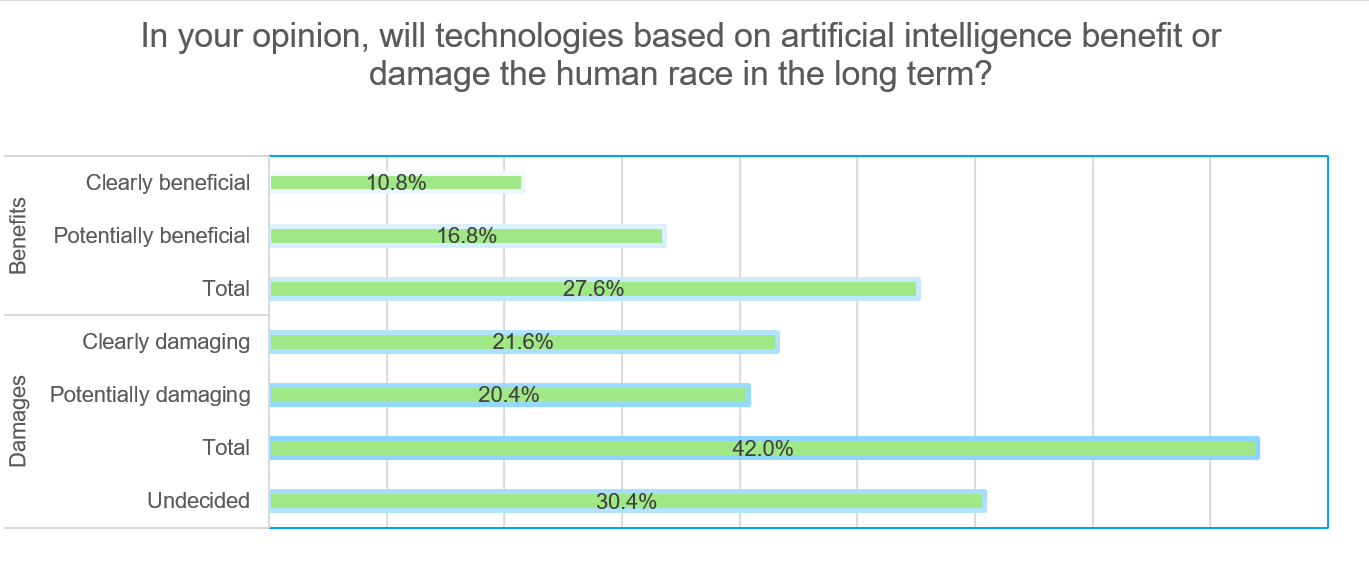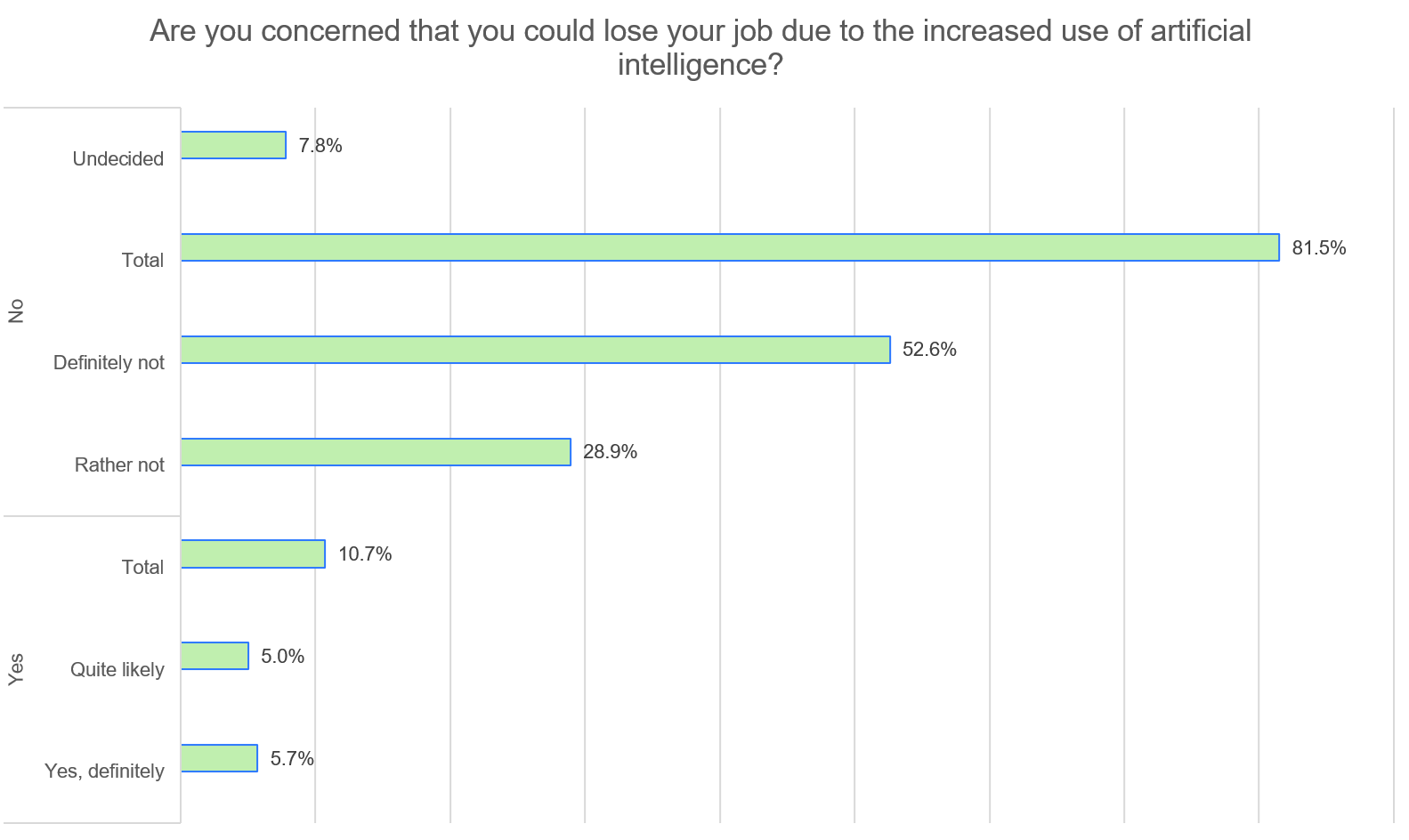- eco Association calls for a broad debate in order to boost societal acceptance
- Only around 28 per cent of respondents think that AI technologies will be useful in the long term
- On the other hand, 18 to 49-year-olds are more inclined to see benefits (38% and 41.3% respectively)
- eco Chair of the Board Süme: “Political action must not be driven by fear and scepticism and should be based on benefit-oriented scenarios”
- eco PolITalk on 16 November 2023 will discuss political regulation of AI
AI is a key technology of the future with a wide range of possible applications and the potential to transform the economy, science and society. Nevertheless, there are still major reservations about AI-based technologies in large parts of the German population. For example, only 28 per cent of participants in a recent representative population survey* conducted by the market and opinion research institute Civey on behalf of eco – Association of the Internet Industry believe that AI will benefit humanity in the long term. 42 per cent of those surveyed believe that AI is more likely to cause damage. 30 per cent of respondents are undecided on this topic.
In the 18 to 39 age groups, however, those who believe AI will be beneficial in the long term outweigh those who do not (18 to 29-year-olds 38%; 30 to 39-year-olds 41.3%).

eco Chair of the Board Süme: “Political action must not be driven by fear and scepticism and should be based on benefit-oriented scenarios”
eco Chair of the Board Oliver Süme is therefore calling for a broad societal debate on the possible effects of AI and political regulation based on benefit-oriented scenarios: “Societal acceptance is the basic foundation for a pragmatic approach to AI technologies,” says Süme, adding that this can only be achieved on the basis of a well-founded debate and an honest dialogue between politics, business, science and society. “I would like to see a digital policy that is more inspired by the optimistic, opportunity-oriented attitude of the younger generation towards new technologies when it comes to AI and other innovative technologies,” Süme goes on to say.
According to Süme, a meaningful assessment of opportunities and risks also requires an understanding of how AI systems work, and the correct political regulation of AI is one of the most important digital policy tasks. While this must keep an eye on risks, it must also continue to enable innovation. “The risk-based approach of the European AI Act is a good foundation here, but it must not now be unnecessarily inflated or diluted,” says Oliver Süme.
Fear of job loss is more likely to affect young professionals
The fear of losing their job due to AI is unlikely to be the cause of general AI scepticism among the vast majority of respondents. Only 12.1 per cent of those surveyed fear losing their job due to AI, while 79.6 per cent have no concerns in this regard.** Paradoxically, however, the fear of being replaced in their own job by AI is above average among the young age group of 18 to 29-year-olds. “This may also be related to the fact that, as we can see from the survey, expectations of the effectiveness of AI-based technologies are particularly high in this generation,” surmises Oliver Süme. Süme adds that companies and politicians alike need to address this concern and develop concepts on how the use of AI in the workplace can be consistently integrated into training and professional development.

eco polITalk on 16 November 2023 will involve a discussion on current political issues relating to AI
On 16 November 2023, eco – along with Dr Anna Christmann, the German federal government's commissioner for the digital economy and start-ups, as well as representatives from the German Bundestag and companies – will together discuss how the European AI regulation can be meaningfully integrated into the global design and governance of artificial intelligence. Further information and registration at:
https://www.eco.de/event/politalk-kuenstliche-intelligenz/
*The opinion research company Civey was commissioned by eco to survey around 2,500 adult German citizens between 7 and 8 November 2023. The results are representative. The statistical error of the overall results is 3.3 per cent.
** The opinion research company Civey was commissioned by eco to survey around 1,000 adult working Germans between 7 and 8 November 2023. The results are representative. The statistical error of the overall results is 5.3 per cent.




